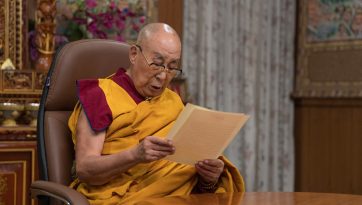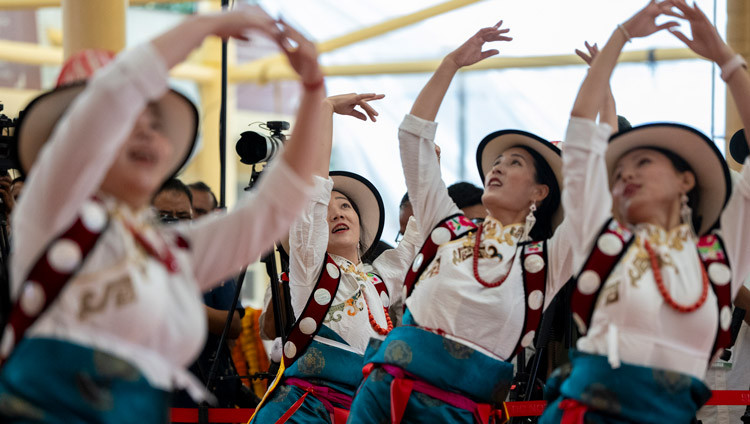Meeting with Engaged Buddhists
October 21, 2019
Thekchen Chöling, Dharamsala, India – Members of the International Network of Engaged Buddhists led by Thai activist Sulak Sivaraksa met His Holiness the Dalai Lama this morning. They included 35 from Thailand, 41 from India, 37 from Burma, as well as people from the USA, Japan, South Korea, Bangladesh, Indonesia, Sri Lanka, Nepal, Taiwan Hong Kong, Switzerland, Hungary and Sweden.
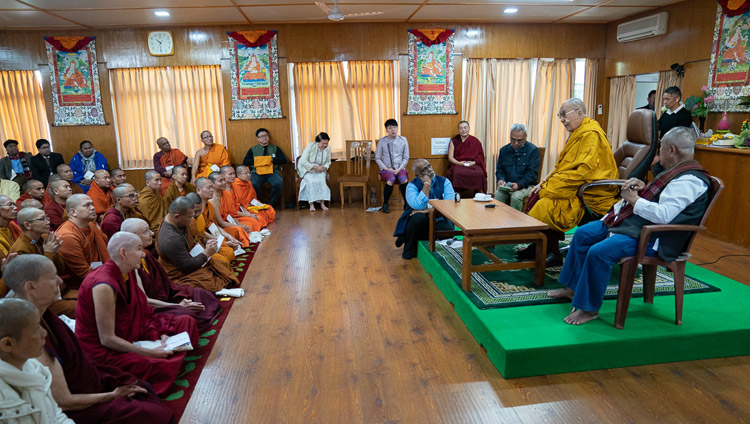
“As human beings, we all want to live a happy life,” His Holiness told them, “but we are regularly faced with problems of our own making. Many such problems arise because we persist in viewing others in terms of ‘us’ and ‘them’. In addition to this, these days, we also see conflict taking place in the name of religion. There are differences between our religious traditions and even within them—for example the Pali tradition included 18 schools of thought, while within the Sanskrit tradition there were four. Different points of view appeal to people of different dispositions, but what is most important to remember is that all religious traditions stress the importance of cultivating loving-kindness.
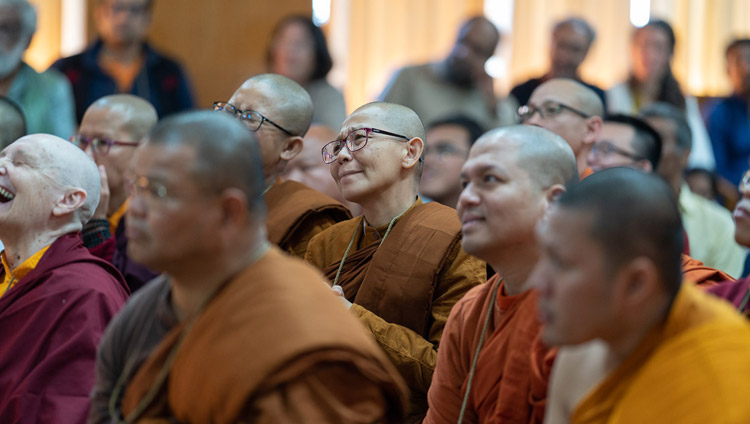
“As you know, the Buddha encouraged his followers to question even what he had told them. Nalanda masters like Nagarjuna, Chandrakirit and Buddhapalita examined his teachings in this light, classifying them into those that were definitive and those requiring interpretation.
“Our collection of scriptures includes 108 volumes of words spoken by the Buddha and 225 volumes of explanatory treatises by subsequent Buddhist masters. We have reassessed the content of these books in terms of science, philosophy and religion. I believe this scientific and philosophical material can be considered in an objective, intellectual way. Consequently, we have compiled books dealing with science and philosophy as recorded in Buddhist literature that have been published in Tibetan and are being translated into English, Chinese, Russian, Mongolian and so forth.”
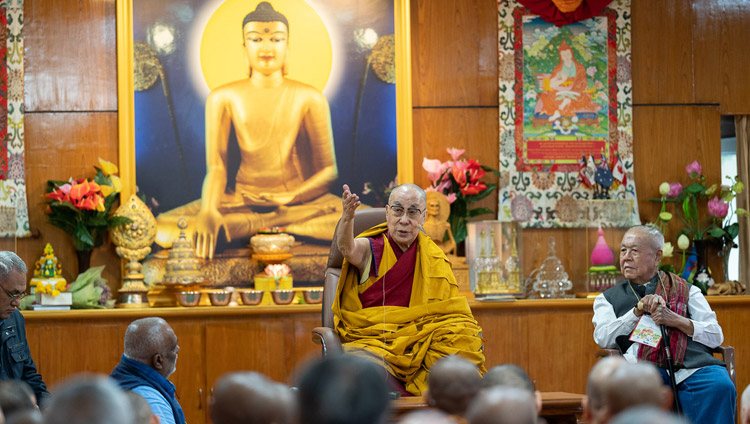
His Holiness emphasised the need for study. He acknowledged that the Pali tradition conveys the Buddha’s fundamental teachings particularly the Vinaya tradition. He recalled visiting Thailand many years ago and being deeply impressed by the Thai monks’ strict way of life. He also reported a conversation he had had at a meeting of the World Parliament of Religions in Melbourne, Australia, with two Burmese monks, who were surprised when he referred to the Vinaya as something they both—Tibetans and Burmese—had in common.
His Holiness alluded to his being committed to reminding people of the oneness of humanity and the importance of nurturing human values, and his encouragement of inter-religious harmony. He mentioned that as a Tibetan he is committed to preserving Tibetan language and culture and speaking up for the protection of Tibet’s natural environment. Finally, he described his commitment to reviving appreciation of ancient Indian knowledge of the workings of the mind and emotions in India.
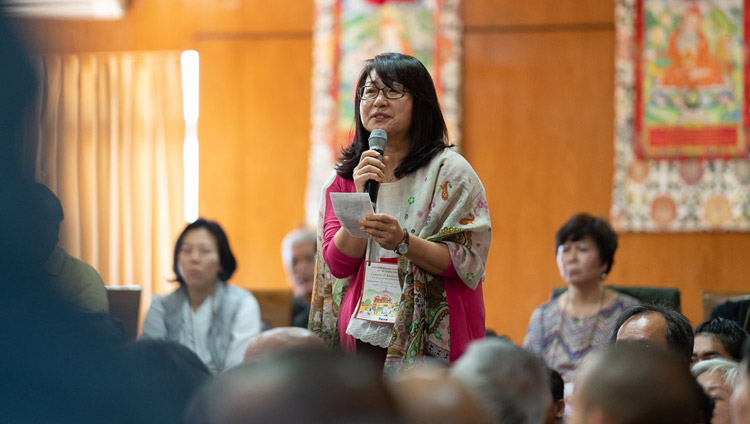
Answering questions from the audience, His Holiness suggested that a tendency for young people today to became depressed and despondent has its roots in the current education system. Modern education, he observed, with little regard for how to tackle disturbing emotions and how to foster positive attitudes, gives insufficient attention to methods for achieving peace of mind. He encouraged his listeners to think about how to change this.

